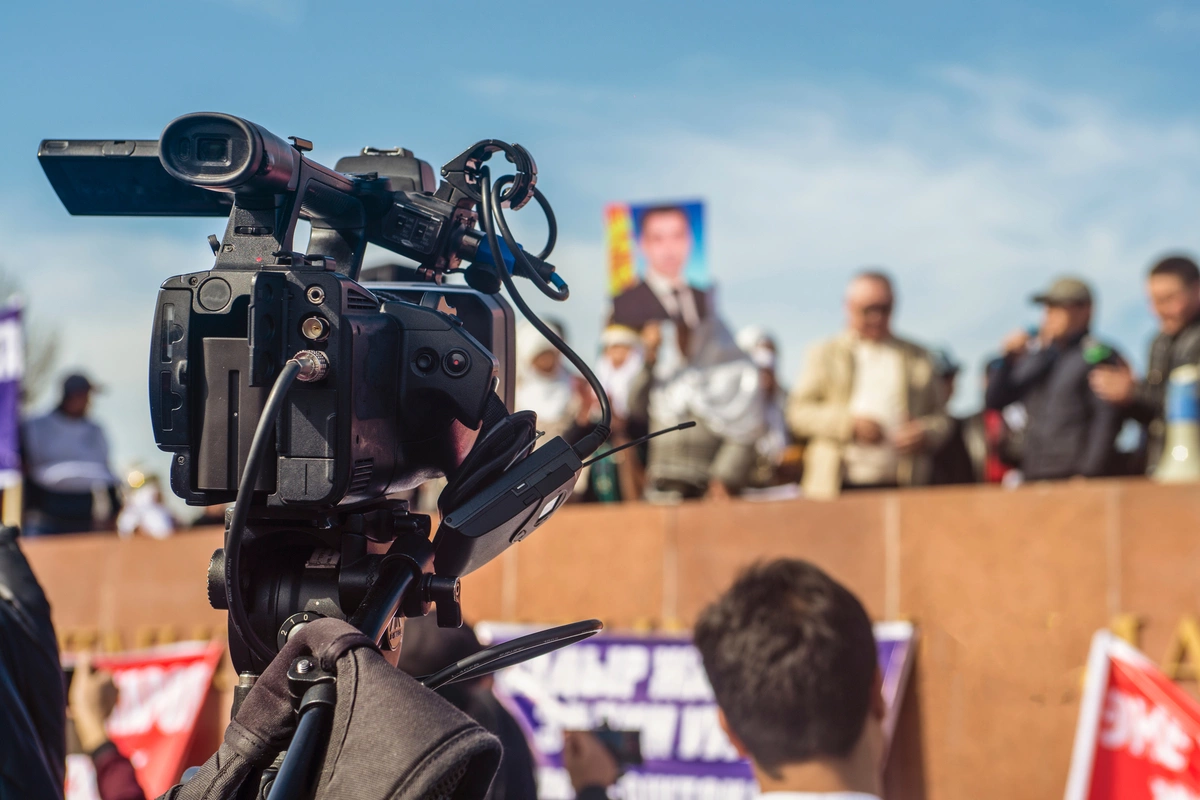
The latest annual World Press Freedom Index produced by Reporters Without Borders (RSF) has revealed the current media landscapes in 180 countries and territories, including the five Central Asian republics; the results have revealed a deplorable situation in most of these countries.
Image: Omurali Toichiev/Shutterstock
This year’s World Press Freedom Index shows a decrease in one of the five indicators used to evaluate the countries in the ranking. Among legal framework, economic context, sociocultural context, and safety, it was the political context that showed the worst results. This makes 2024 the year when journalists worldwide have witnessed worsening political pressure.
The first of the Central Asian countries is Kyrgyzstan. Regarded as “an exception” in Central Asia, it went from 122nd to 120th place in a year. Despite the government controlling traditional media, there is “a degree” of media pluralism, with the surge of investigative and data journalism in the country. However, officials have been trying to adopt laws that would restrict and censor press freedom. In the meantime, more and more websites have been blocked, and media and journalists are being “raided and prosecuted on the basis of false accusations.” Similarly to another post-Soviet country Georgia, the authorities are preparing to pass the infamous “foreign agents” law that would make the work of independent media in the country more difficult and would portray them as “slaves of the West.” On 16 January 2024, the police arrested 11 journalists who were working for an investigative YouTube channel run by Bolot Temirov, who was expelled from the country two years prior.
Kazakhstan ranks eight places lower this year—from 134 in 2023 to 142 in 2024. It is reported that although independent media can reach their audience only on the Internet, “the media landscape is now essentially a propaganda outlet for the Kazakh regime.” The government’s support for the media that promotes its agenda makes it more difficult for independent media to compete with the former due to the lack of funding. As per media workers’ and journalists’ safety, they have to face “arrests, assaults, telecommunications blackouts, internet shutdowns,” as well as censorship by the government. On a more positive note, Kazakhstan is the only Central Asian country without any detained journalists and media workers as of today.
The next Central Asian republic on the list is Uzbekistan. It scored eleven ranks lower this year (148 in 2024; and 137 in 2023). Similar to its Central Asian neighbours, the Uzbek government controls the media and uses “economic pressure” on journalists. While laws and regulations restricting independent media funding, especially from abroad, hinder its growth. Reportedly, those few independent online media remaining in the country “are reluctant to officially register as a media outlet, at the risk of being prosecuted and facing heavy fines for their content.” When it comes to covering topics that the government is determined to conceal, such as the status of Karakalpakstan as a sovereign autonomous republic, reporters face repression or even physical attacks. As of today, four journalists have been detained.
Tajikistan fell two points lower this year—from 153 in 2023 to 155 in 2024. Reportedly, President Emomali Rakhmon’s “repressive drift” is worsening the media landscape in the country. While independent media are shutting down and journalists are relocating abroad, those who stay are “categorized as ‘terrorists’,” have limited access to official information, as well as might face intimidation, arrest, and imprisonment. Seven journalists have been detained this year.
Turkmenistan remains the lowest-rated country not only in the Central Asian region but also among other post-Soviet states. Although it went one rank higher—from 176 last year to 175 this year—the media landscape in Turkmenistan is censored and heavily controlled by the government. It is reported that “news in Turkmenistan…amounts only to praise for the regime,” and the government’s grip only intensified after the new president, Serdar Berdymukhamedov, the son of the previous president, won the March 2022 election. As of today, two journalists have been detained, while those few who remain in the country have to “work undercover, risking prosecution, prison and torture.”
Share on social media